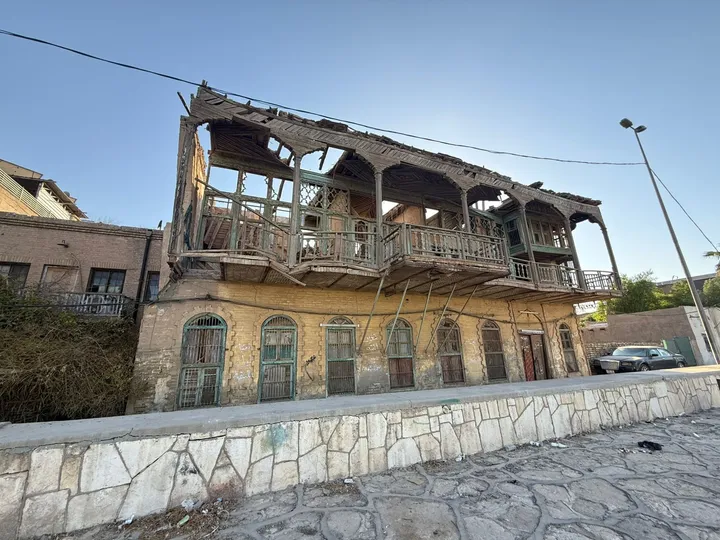"Dahomey", a documentary by Franco-Senegalese director Mati Diop probing the thorny issues surrounding Europe's return of looted antiquities to Africa, won the Berlin film festival's top prize Saturday.
Kenyan-Mexican Oscar winner Lupita Nyong'o, the first black jury president at the 74th annual event, announced the seven-member panel's choice among 20 contenders for the Golden Bear award at a gala ceremony.
Diop said the prize "not only honours me but the entire visible and invisible community that the film represents.
"To rebuild we must first restitute, and what does restitution mean? To restitute is to do justice," she added.
South Korean arthouse favourite Hong Sang-soo captured the runner-up Grand Jury Prize for "A Traveller's Needs", his third collaboration with French screen legend Isabelle Huppert.
Hong, a frequent guest at the 11-day festival, thanked the jury, joking "I don't know what you saw in this film".
French auteur Bruno Dumont accepted the third-place Jury Prize for "The Empire", an intergalactic battle of good and evil set in a French fishing village.
Dominican filmmaker Nelson Carlo de los Santos Arias won best director for "Pepe", his enigmatic docudrama conjuring the ghost of a hippopotamus owned by the late Colombian drug baron Pablo Escobar.
'Collusion'
Marvel movie star Sebastian Stan picked up the best performance Silver Bear for his appearance in the US satire "A Different Man".
Stan plays an actor with neurofibromatosis, a genetic disease causing disfiguring tumours, who is cured with a groundbreaking medical treatment.
The Romanian-American heartthrob called it "a story that's not only about acceptance, identity and self-truth but about disfigurement and disability -- a subject matter that's been long overlooked by our own bias".
Britain's Emily Watson clinched the best supporting performance Silver Bear for her turn as a cruel mother superior in "Small Things Like These".
The film starring Cillian Murphy is about one of modern Ireland's biggest scandals: the Magdalene laundries network of Roman Catholic penitentiary workhouses for "fallen women".
She paid tribute to the "thousands and thousands of young women whose lives were devastated by the collusion between the Catholic church and the state in Ireland".
German writer-director Matthias Glasner took the Silver Bear for best screenplay for his semi-autobiographical tragicomedy "Dying", a three-hour tour de force by some of the country's top actors depicting a dysfunctional family.
The Silver Bear for outstanding artistic contribution was awarded to cinematographer Martin Gschlacht for the chilling Austrian historical horror movie "The Devil's Bath", about depressed women in the 18th century who were murdered in order to be executed.
A separate Berlinale Documentary Award went to a Palestinian-Israeli activist collective for "No Other Land" about Palestinians displaced by Israeli troops and settlers in the West Bank.
Many of the award winners including Diop criticised the war in Gaza from the stage and called for an immediate ceasefire.
'Some kind of miracle'
Diop's taut, dreamlike film traces the 2021 journey home of 26 precious artefacts of the Dahomey kingdom to Benin from a Paris museum.
In the movie, Diop has one of the statues recount in a haunting Fon-language voice-over his land being pillaged by the French, the circumstances of his own exile and his ultimate repatriation in Cotonou museum.
Upon the collection's arrival, local students debate in fascinating, unscripted scenes the historic importance of the restitution gesture and whether it is cause for rejoice or outrage.
The New York Times called the documentary "some kind of miracle, packing an extraordinary amount of information, inquiry and wild, persuasive imagination into a slim, 68-minute runtime".
Variety said "Dahomey" was a "striking, stirring example of the poetry that can result when the dead and the dispossessed speak to and through the living".
Diop's supernatural Netflix drama "Atlantics" made her the first black woman to compete in Cannes in 2019, when she picked up the runner-up Grand Prix award.
While acknowledging restitution's importance, Diop told AFP during the festival she had no intention of "celebrating" the gesture by French President Emmanuel Macron.
Only 26 artefacts were returned "against the more than 7,000 works still held captive" in Paris, she noted.
























